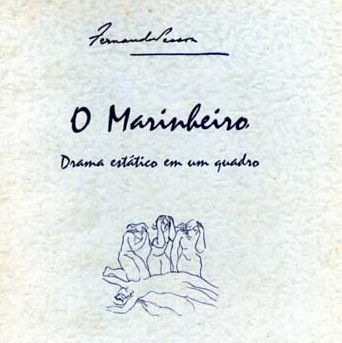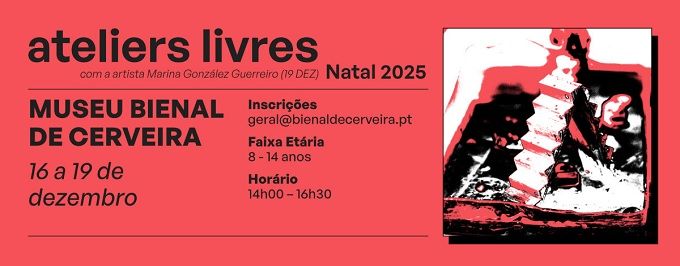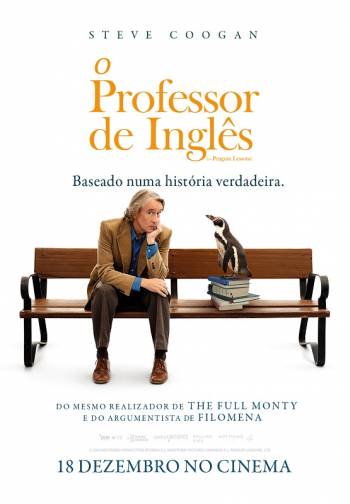Obras de referência da cultura portuguesa
"O MARINHEIRO"
de FERNANDO PESSOA
Análise de Duarte Ivo Cruz
Tradução de Alexandra Leitão

"O MARINHEIRO" DE FERNANDO PESSOA, OU OS PARADOXOS DO "DRAMA EM GENTE"
Pessoa considerava-se "essencialmente um dramaturgo". E mais: considerava que "o ponto central da (sua) personalidade artística é que (sou) um poeta dramático". No sentido lato do termo, toda a obra pessoana constitui, de facto, a expressão dinâmica do "drama em gente". Mas paradoxalmente, o teatro, como expressão concreta e intencionalmente vocacionada para a cena - e só aí temos verdadeiro teatro - ocupou-lhe pouco tempo e fica aquém da obra global.
Tal como em Camões, e isto porque, em ambos, as expressões não dramatúrgicas são por tal forma sublimes que tendem a conduzir a obra dramatúrgica, ainda por cima, em ambos, breve, para um plano menor: e no entanto, num e noutro caso, a dramaturgia, breve que seja, alcança altíssimos níveis de qualidade.
No que respeita então a Pessoa, devemos concentramo-nos em "O Marinheiro" que mereceu a inclusão no primeiro número do Orpheu (1915). O que é tanto mais significativo quanto é certo que Pessoa assume um rigor simbolista, passe o paradoxo, que está longe de ser constante na restante obra. Talvez porque admita - e não é esse um paradoxo menor - a qualificação de um denominado "teatro estático, aquele cujo enredo dramático não constitui acção - isto é, onde as figuras não só não agem, porque nem se deslocam nem dialogam sobre deslocarem-se, mas nem sequer têm sentidos capazes de produzir uma acção".
Daí, a epígrafe de "O Marinheiro" expressamente designado como "drama estático"...
E é o que ocorre em "O Marinheiro", com a suprema sublimação simbolista de concentrar a realidade e a acção no sonho do marinheiro. Trata-se de uma longa e muito bela fala, que não podemos aqui transcrever na íntegra, mas que pode e deve ser citada nos seus parâmetros de criação onírica, muito marcada pela fidelidade à estética do símbolo, do oculto e insista-se, do onírico. E no entanto, a acção dramática está subjacente:
"Ao princípio ele criou as paisagens; depois criou as cidades, criou depois as ruas e as travessas, cinzelando-as uma a uma na matéria da sua alma - uma a uma as ruas, (...) e a gente que as percorria e que olhava sobre elas das janelas... Passou a conhecer certa gente, como quem a reconhece apenas... Ia-lhes conhecendo as vidas passadas e as conversas e tudo isto era como quem sonha apenas paisagens e as vai vendo (...) E assim foi construindo o seu passado... Tinha já, nessa nova pátria, um lugar onde nascera (...) os companheiros de infância e depois os amigos e inimigos... (...) Tudo era diferente de como ele o tivera - nem o país, nem a gente, nem o seu passado próprio se pareciam com o que haviam sido".
"O MARINHEIRO" BY FERNANDO PESSOA OR THE PARADOXES OF THE “DRAMA EM GENTE”
Pessoa considered himself “essentially a playwright”. More, he considered that the “central point of (my) artistic personality is that (I am) a dramatic poet”. In the broad sense of the term all Pessoa’s work is in fact the dynamic expression of the “drama em gente”. Paradoxically, the theatre, as a concrete expression expressly geared to the stage – which is the only real theatre – did not occupy his time much and falls short of the quality of his overall work.
This is also the case with Camões, due to the fact that in both men the non-dramaturgical output is so sublime that it tends to place the dramaturgical works, few in both cases, on a minor level: and nevertheless, in both cases, however short the plays they are always of extremely high quality.
Let us then consider Pessoa and “O Marinheiro”, which deserved inclusion in the first issue of Orpheu (1915). This is all the more significant when we know that Pessoa assumes a symbolist rigour that is far from being constant in his remaining work. Maybe because he admits – and this is not a lesser paradox – the qualification of a so-called “static theatre, where the dramatic plot has no action, that is, where the characters not only do not act, because they neither move nor speak as they move, but because they are incapable of producing action”.
Hence, the epigraph in “O Marinheiro” expressly designed as a “static drama”.
And this is exactly what occurs in this play, with the supreme symbolist sublimation of concentrating the action and the reality in the dream of the sailor. It is a long, very beautiful speech, impossible to transcribe in full, but that can and must be quoted in its parameters of oneiric creativity, marked by fidelity to the aesthetics of the symbol, the occult and of course, the oneiric. Nevertheless the dramatic action is underlying:
“In the beginning he created the landscapes; then he created the cities, later he created the roads and the streets, engraving them one by one on his soul – the streets, one by one (…) and the people walking along them and those looking down at them from the windows. He began to know some of the people, but as if scarcely recognising them. He began to know their past lives and their conversations, all this as if dreaming of landscapes only and then seeing them (…) And so he built his past… In this new homeland he already had a place where he had been born (…) his childhood companions and later his friends and enemies… (…) All was different to what he had had – neither the country nor the people nor his very past resembled what they been”.
projeto desenvolvido pelo Centro Nacional de Cultura

 Divulgue aqui os seus eventos
Divulgue aqui os seus eventos














